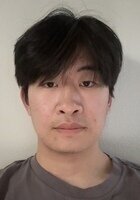Create an account to track your scores
and create your own practice tests:
Question of the Day: ACT Science
Which of the following represents a normal distribution?




Facing the ACT is stressful for even the best students. You know that this test can have a major impact on the success of your college applications. Unlike your GPA, extracurricular activities, or letters of recommendation, the ACT Science test is totally objective. For example you might attend a school that grades students with far more rigor than another. A university needs an objective measure to distinguish your transcript from a student with the same GPA, but from a less rigorous program. The ACT is just that tool.
You also know that the ACT is not like tests you have taken in classes. Instead, it is testing the development of your critical thinking skills over the past four years. Four years on one exam day! Whether you need ACT Science tutoring in New York, ACT Science tutoring in Chicago, or ACT Science tutoring in Los Angeles, working one-on-one with an expert may be just the boost your studies need.
That’s a lot of material to test. Because of just how much material there is, many students can feel lost about where to start. You may look at the sections included on the test, and panic when you see Science listed . . . especially if you are one of the many students who struggled in some of their high school science courses! Will you have to answer questions about that frog dissection from two years ago? Will you need to identify rocks from your Earth Science class? That might as well have been a lifetime ago.
Hopefully it calms your nerves a little bit to recognize that none of these things will be directly tested. You won’t have to dig up the details of your classes from several years back, nor will you be facing questions about advanced quantum physics or rocket science. Varsity Tutors offers resources like a free ACT prep book to help with your self-paced study, or you may want to consider an ACT Science tutor.
The ACT Science exam tests exactly what the rest of the ACT tests: your ability to think critically, analyze provided material, and draw inferences. It is far more a reading comprehension test, in fact, than a science test. It just so happens that you will be asked to comprehend passages based on science, which makes some students immediately anxious. This anxiety, unfortunately, does not set a good foundation for success on the exam!
Clearly, familiarizing yourself with the ACT Science exam before your actual test day is critical. Appreciating the exam for what it is, is critical. You may want to consider working with tutors, teachers, or in a test-preparation program to help you overcome the anxiety many students feel, and appreciate that your success on this exam is based on the same principles that you would need to succeed on any reading comprehension test.
It’s also important to consider that the time you spend on improving your performance on the ACT Science test doesn’t just pay off on test day. Precisely because the test is asking you to draw inferences, make conclusions, and think critically, you are developing skills that will be demanded in a wide variety of later academic pursuits. The time you spend preparing for the ACT Science exam can be thought of as a broad investment in your future performance across many disciplines.
Without a doubt, proper preparation for the ACT Science exam is essential. Overcoming anxiety is probably the first step. Varsity Tutors’ free ACT Science resources, and specifically our free ACT Science question of the day, can help you take the next step of making studying for your exam a habit. Our daily featured ACT Science problem provides the correct answer and a full explanation when answered; if you get it right, you gain confidence in your abilities, and if you get it wrong, you have the opportunity to fine-tune your understanding. In addition to the ACT Science Question of the Day and ACT Science tutoring, you may also want to consider taking some of our ACT Science practice tests. With practice questions, strategy, and proper perspective, you can achieve a great score and be well on your way to your dream college!
Certified Tutor
Certified Tutor
All ACT Science Resources




